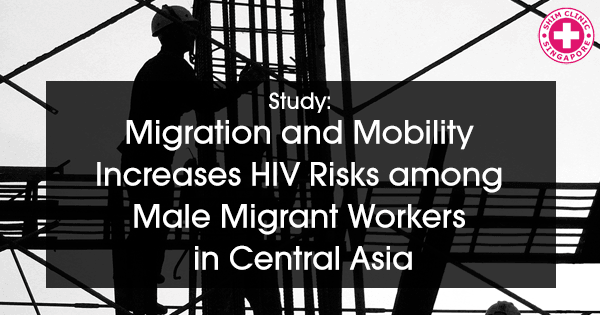Migration is an inevitable activity within anything that has life. People migrate due to various reasons. Some in search of brighter future and others adventure this are examples of the many reasons why people migrate. In China people have been migrating in search of work, both internally and externally in masses. This has seen the number of people infected with HIV/AIDS and other STDs go up.
Around the world low income and middle-income countries experience migration of nationals in masses both internally and externally. Labor is one of the main reasons for migration. Migration internally and externally has proven to have both positive and negative effects within a nation. In China, it has been proven that increased risk of contracting HIV and STI’s is due to risk behaviors associated with the migrants and non-migrants.
Effects of Migration in China
Other than this health factors other factors like economic, social and environmental have been negatively affected. To give examples;
- Poor unstable housing
- Lack of health facilities
- Lack of social support
- Unemployment
- Poverty
- loneliness
- Unstable policies due to population influx
A study conducted by El Bassel N et al and funded by National Institute of Health sought to find out how migration and mobility affect HIV risk behavior that could lead to infection and other STIs in China. Risk behaviors include but not limited to multiple sexual partners, sex trade, low use of protection while having sex and the like.
Respondent-driven sampling was used in the study. Sample male market workers from Almaty, Kazakhstan in central Asia market were used. The researchers compensated potential participants as an incentive to participate and recruit others.
All the eligible participants completed an audio computer assessment. This lasted about an hour or an hour and a half. Characteristics studied included; education, socio-economic background, age, marital status and so on.
The Research Findings
The study found that about 33.2% of the participants spent at least one night outside of Almaty within the last 90 days before the study. It was also estimated that 20.2% of the population earned below the minimum living wage and that 37.2% of men were currently in debt.
85.8% of those studied did not have access to medical care and out of these, 17.1% had needed to see a doctor at some point but did not. From the group, 3 participants tested HIV positive, 44 tested were found to have syphilis and 69 had other STIs such as gonorrhea and Chlamydia.
From the study, it was clear that people with an income below the minimum wage and those without access to medical care were at a higher risk of contracting STIs.
Conclusion
The study is an eye opener in regards to HIV risk infection with the internal and external immigrants. The study has brought to attention the need to come up with proper policies and programs that address the needs of internal and non-migrant who are always on the move and are at risk of contracting HIV and other STIs because migration and mobility has a direct effect on the spread of HIV. Organizations who are responsible for bringing in immigrants should make STD testing as well as HIV tests at a trusted STD clinic mandatory and as part of the immigration package.
Read the original study here:

